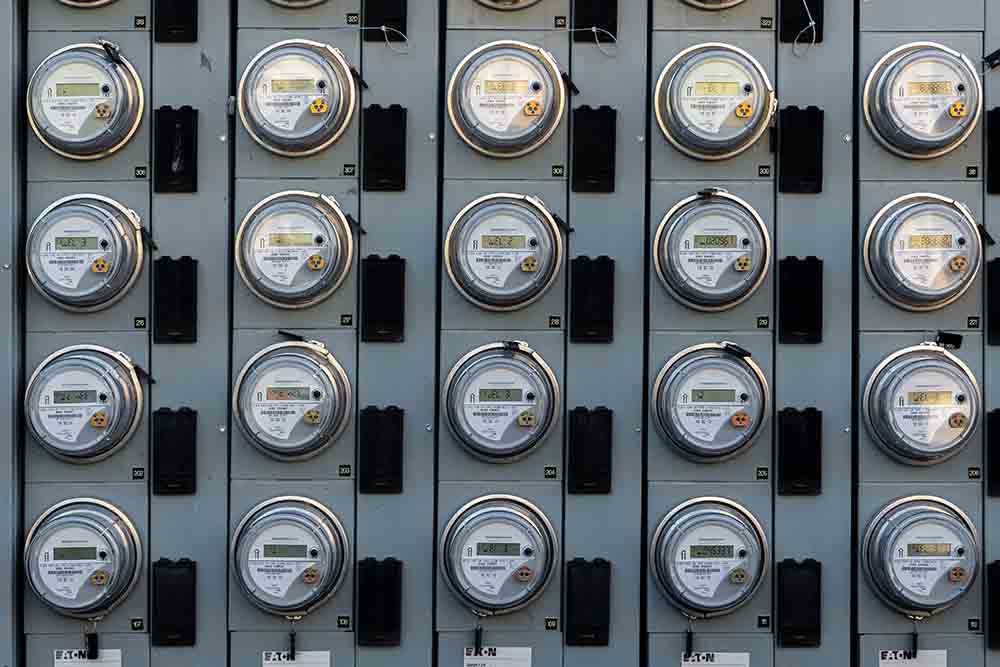There have been few practical measures presented to achieve the lofty goals laid out in the prime minister’s green agenda or the UN’s 2030 Agenda for Sustainable Development. Gender equality, increased daycare spending, and reduced fossil-fuel usage might make for pretty speeches, but they do little to boost economic growth or help struggling Canadians.
Genuine, permanent advancements are rarely a result of grandiose pronouncements by government, such as a purported reimagining of the economy. More often, economic advancement comes incrementally, even quietly by the intelligent development and implementation of technological innovations. Smart meters are one such success story. They will continue to promote energy efficiency, which is crucial for economic growth and sustainable development, as Canada progresses out of the COVID-19 pandemic.
Over the past nine years, utilities have invested $15 billion in advanced metering infrastructure (AMI). AMI is a metering and communications system that comprises a network of electronic devices called smart meters. Each smart meter has an individual IP address to record energy-consumption data in real-time and report daily at short intervals. Electricity suppliers use this information for system monitoring and customer billing. Consumers also have the opportunity to use this information to track their individual consumption and adjust their energy usage behaviours to save energy and money.
Smart meters “provide a digital link between electric companies and their customers by opening the door to new and expanded services, such as smart home energy management, load control, budget billing, usage alerts, outage notifications, and time-varying pricing.” As of 2018, smart meters covered nearly 70 percent of US households. The Edison Foundation Institute for Electric Innovation anticipates that by 2021, 85 percent of all US electricity accounts served by investor-owned utilities will be read through AMI.
Smart meters boast a myriad of benefits for consumers, according to a recent paper by the R Street Institute based in Washington, DC: “Leveraging Competitive Markets to Unlock the True Value of AMI.”
One potential benefit of AMI is lowering the existing cost of competitive supply. Costs to serve large commercial industrial (LCI) customers can vary significantly, so they are billed based on actual interval usage data; however, residential consumers often have their usage costs based on average data profiles rather than their own. Shifting away from fixed rates enables customers to respond to price signals. Research done by R Street has found that residential consumers currently on competitive supply could save approximately $250 million per year under smart-meter rates.
AMI also boosts consumer welfare, as noted by the United Kingdom’s Department of Energy and Climate Change. Smart meters eliminate the need for estimated billing, so households will free up disposable income reserved for overpayments, enabling better management of energy use.
With smart meters, consumers need not worry about finding a surprise on their energy bill. Budget tools and alerts notify customers if their bill is projected to be higher than normal. In southern California, more than 500,000 Edison energy customers who sign up for budget management save 0.5 percent on average compared to those who do not.
A report published by Allied Market Research showed that the global smart-meter industry garnered $21.1 billion in 2019 and is expected to reach $39.20 billion by 2027. Based on region, Asia accounted for the largest market share in 2019, holding nearly three-fifths of the global smart-meter market, and will maintain its dominant position by 2027. North America is expected to come in second place with a compound annual growth rate of 9 percent by 2027.
Eight in 10 Canadians already have smart meters, and their widespread deployment continues with the recent approval of New Brunswick Power’s $110 million smart meter proposal by the Energy and Utilities Board.
We have an ever-growing, insatiable appetite for energy, amplified by lockdowns confining everyone to their homes. Being able to access real-time information about energy use in one’s home display unit and communicate directly with electricity suppliers has been invaluable.
Insights from behavioural economists tell us how receiving more information does not necessarily translate to corresponding behavioural changes. The framing effect explains how we change our decisions based on how information is presented to us. A study by Simon Bager and Luis Mundaca for the International Association for Energy Economics supports the hypothesis that “framing reductions as avoiding a loss, rather than obtaining a gain, can trigger behavioural responses leading to conservation and energy efficiency measures.” Research by the American Council for Energy-Efficient Economy has found that usage data should be paired with incentive strategies to motivate customers to modify their energy use.
Smart meters remove the need for someone to travel to consumer homes to read household meters, enabling customers to avoid transaction costs and maintain social distance. Although the recent pandemic-related shutdowns have stalled many smart-metering projects, they have also underscored the growing importance of smart meters in our transition to “the new normal.”
Caitlin Rose Morgante is a Boston University economics student and an Econ Americas intern.
Photo by Jon Moore on Unsplash.



